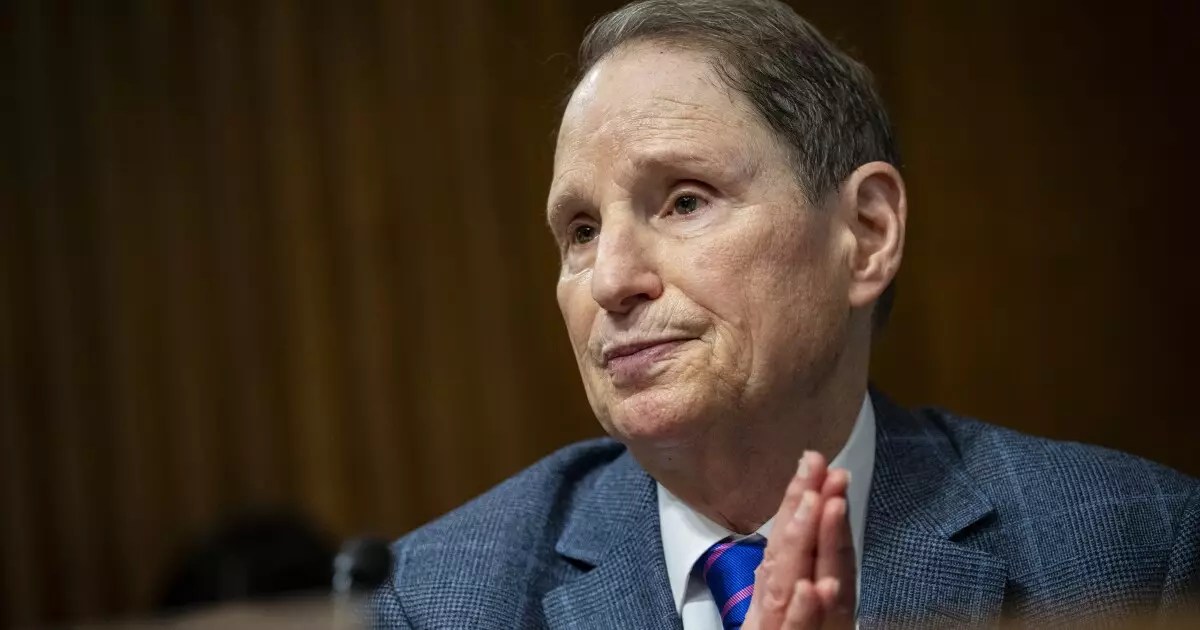The Senate Finance Committee recently opened a crucial forum on the complex and contentious issue of tax reform, setting the stage for a robust debate that looms over the upcoming fiscal year. Highlighted during this hearing was the marked divide between Democratic and Republican approaches to tax policy, illustrating starkly different philosophies regarding wealth accumulation and fiscal responsibility. Senator Ron Wyden of Oregon underscored the impending struggle: “This will be a make-or-break moment for the federal budget and America’s middle class,” he stated. It’s evident that lawmakers are keenly aware of the potential implications tax reform could have on the financial landscape for American families.
As the committee examines the 2017 Tax Cuts and Jobs Act (TCJA), which is due for reevaluation as key provisions are set to expire, legislators find themselves walking a tightrope between necessary fiscal adjustments and political pragmatism. With the light of the election season ahead, the stakes have never been higher for both sides of the aisle, raising questions about who will bear the financial burden in future tax codes.
Senator Mike Crapo of Idaho vehemently voiced concerns that allowing TCJA provisions to lapse would unleash a wave of multi-trillion-dollar tax hikes on the American populace. His argument indicates a fear that reversing these cuts could signal a retreat from the stability promised during previous tax reforms. On the contrary, for Democrats, the key issue revolves around whether wealthy individuals will be compelled to pay taxes on the income they accrue. This conversation highlights a broader societal debate about responsibility and equity in taxation.
The discussion is not merely a theoretical exercise; it’s a reflection of the profound anxieties among households about financial obligations. The contrasting views express how taxes have become a political battleground—with Democrats pushing to close loopholes benefitting high earners while Republicans stand guard against perceived encroachments on middle-class financial security.
Part of the ongoing discourse includes the contentious state and local tax (SALT) deduction, which has widely drawn scrutiny since its capping under the TCJA. New Jersey Senator George Helmy’s commentary on SALT demonstrates bipartisan concern from lawmakers representing high-tax states. He articulated the notion that the cap primarily burdens middle- and lower-income households rather than wealthy homeowners. This sentiment reveals an often-overlooked reality: tax policy does not exist in isolation but impacts various socio-economic strata differently.
Encouraging affordable housing continues to be a prevalent subject among lawmakers, and discussions related to streamlined housing tax credits illustrate clear ambitions to alleviate burdens on struggling families. As the committee anticipates the next steps in tax reform, it’s essential to recognize the forces at play that drive these priorities, particularly amidst rising housing costs that affect vulnerable populations disproportionately.
Another significant aspect presented at the hearing was the proposed “billionaire tax,” championed by Democratic rhetoric as a balanced solution to wealth inequality. This proposal, which suggests a 25% minimum tax on individuals with net worths surpassing $100 million—including investments and unrealized gains—has become a highly charged topic. Republican Senator Steve Daines criticized the measure as unconstitutional, while Democratic Senator Elizabeth Warren portrayed it as a necessary step towards fiscal reform that could generate substantial revenue.
Warren’s assertion that this tax could yield $500 billion over a decade highlights the potential for substantial shifts in revenue collection; however, whether this proposal garners enough bipartisan support remains to be seen. It raises an essential question: can multipartisan coalitions form around a shared vision of equitable tax policy, or will entrenched interests prevail?
The impending tax debate represents more than just a fiscal recalibration; it’s a pivotal moment in American politics that could redefine the societal contract between citizens and their government. As both sides of the aisle prepare their positions, the imminent discussions hold the potential not only for economic ramifications but also for shaping the values guiding American governance moving forward.
With the clock ticking down to legislative action, all eyes will remain glued to Congress to see if they can navigate the treacherous waters of tax reform. The outcome will likely reverberate across various sectors, influencing everything from housing markets to individual finances. Now more than ever, the urgency for an equitable, forward-thinking tax policy is clear—it’s time for Congress to raise its collective voice and seek viable solutions that serve the interests of the American people.


Leave a Reply